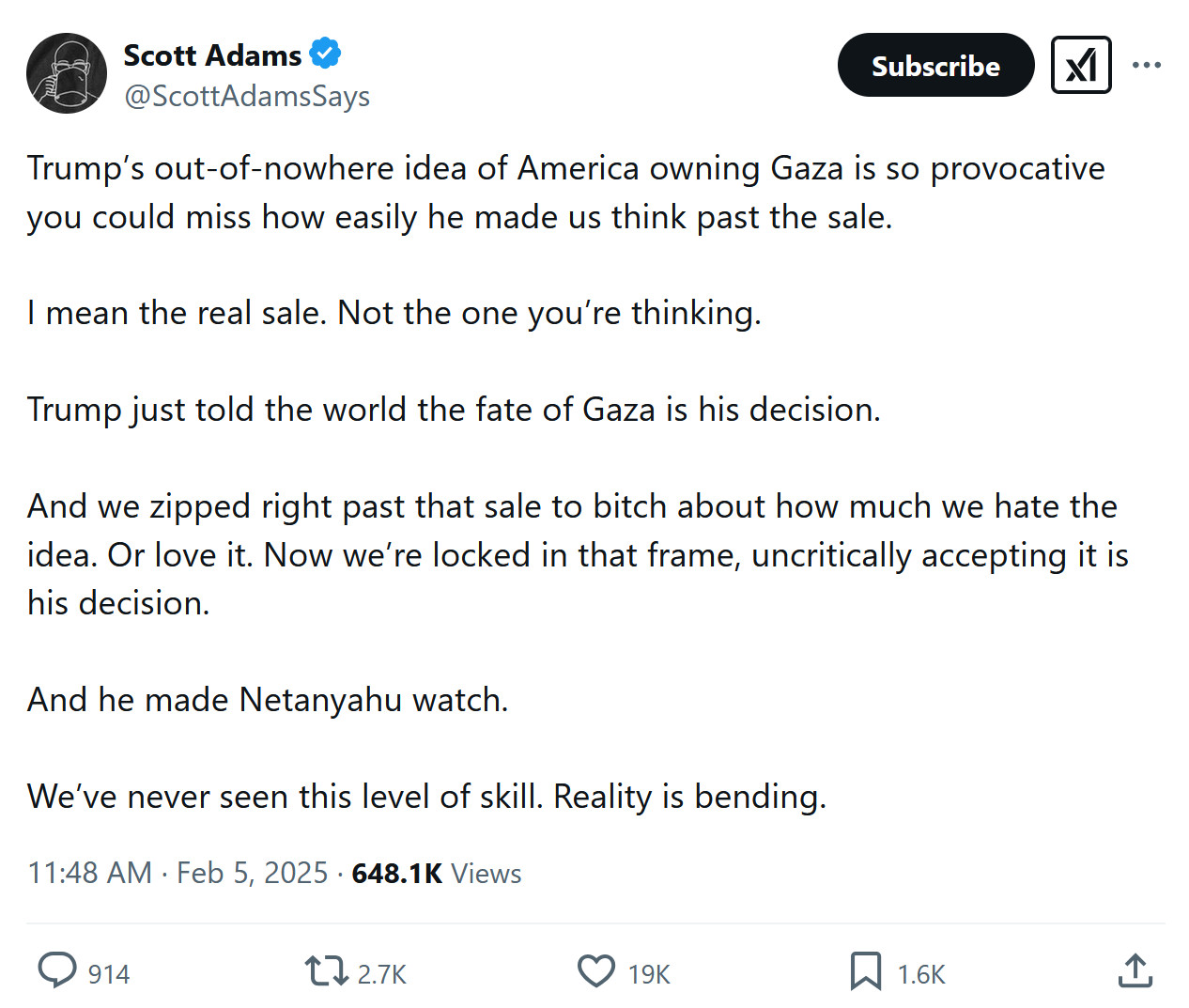LEE SMITH: The End of ‘Palestine.’
Yesterday, President Donald Trump single-handedly collapsed the most destructive idea of the last hundred years—Palestine. During meetings with Israeli Prime Minister Benjamin Netanyahu and other Israeli officials, Trump said he was going to move 1.7 million Palestinians out of Gaza. And just like that, he broke the long spell that had captured generations of world leaders, peace activists, and Middle East terror masters alike, who had paradoxically come to regard the repeated failure and haunting secondary consequences of the idea of joint Arab Muslim and Jewish statehood in the same small piece of land as proof of its necessity.
Palestine was a misshapen idea from the beginning, engendered by an act of pure negation. The Arabs could have gone along with the U.N.’s partition plan like the Jews did, and chosen to build whatever version of Switzerland or Belgium on the eastern Med in 1948. Instead, they resoundingly chose war. That’s the storied “Nakba” at the core of the Palestinian legend—the catastrophe that drove the Arabs from their land and hung a key around the neck of a nation waiting to go home. The Arabs chose the catastrophe; they chose war, based on the premise that they would inevitably win and exterminate the Jews.
Yet despite repeated military failures, and the increasing distance between the first-world powerhouse that the Israelis built and their increasingly war-torn, third-world neighborhood, the global conscience was always predisposed to rebuilding what the Palestinians destroyed. Accordingly, the Palestinian Arabs became a tribe of feral children whose identity was carved out of the relentless vow to eliminate Israel and slaughter the Jews en masse—despite repeated failures, each one more crushing than the last.
Trump said, enough, we’re not rebuilding Gaza. Time for a new idea—the Gazans have to to go, they can try to start again somewhere else, in a land where every building still standing isn’t already wired to explode.
I’m curious to see how Trump’s seemingly off the cuff remark plays out, but as Scott Adams notes:

